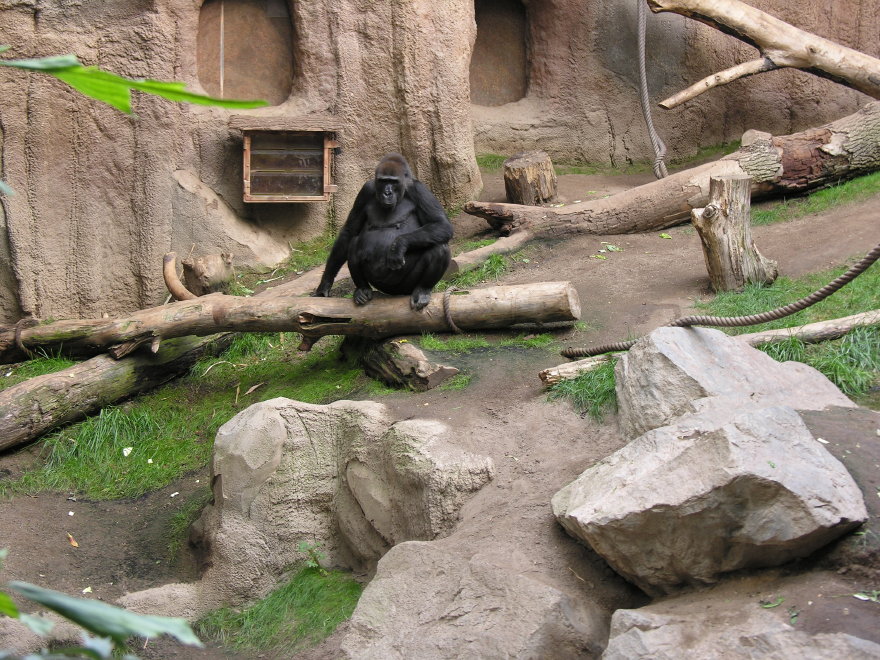Free Photo: Gorillaat the Leipzig Zoo, Germany
[Previous Page | Index | Next Page]

10leipzigzoo.jpg
The Leipzig Zoo's Pongoland, which opened in 2001, is home to six Western Lowland Gorillas.
They live in heavy rain forests, and it is difficult for scientists to accurately estimate how many survive in Cameroon, Central African Republic, Congo, Equatorial Guinea, Gabon, Angola, and the Democratic Republic of Congo.
Western lowland gorillas tend to be a bit smaller than their mountain cousins. They also have shorter hair and longer arms.
Gorillas can climb trees, but are usually found on the ground in communities of up to 30 individuals. These troops are organized according to fascinating social structures. Troops are led by one dominant, older adult male, often called a silverback because of the swath of silver hair that adorns his otherwise dark fur. Troops also include several other young males, some females, and their offspring.
The leader organizes troop activities like eating, nesting in leaves, and moving about the group's three-quarter- to 16-square-mile (2- to 40-square-kilometer) home range.
Those who challenge this alpha male are apt to be cowed by impressive shows of physical power. He may stand upright, throw things, make aggressive charges, and pound his huge chest while barking out powerful hoots or unleashing a frightening roar. Despite these displays and the animals' obvious physical power, gorillas are generally calm and nonaggressive unless they are disturbed.
In the thick forests of central and west Africa, troops find plentiful food for their vegetarian diet. They eat roots, shoots, fruit, wild celery, and tree bark and pulp. (source: http://animals.nationalgeographic.com/animals/mammals/lowland-gorilla.html)
[Previous Page | Index | Next Page]
This page last updated January 2015
Visit http://www.TechnologySite.org for free
photos and lists of inventions and technology. Visit http://www.ClimateChangeFacts.info for unbiased
information about climate change. Visit http://www.ClimateCooling.org for eye-opening
biased information on global cooling and climate change and visit http://www.OceanAssoc.com for fisheries
and oceans consulting services.